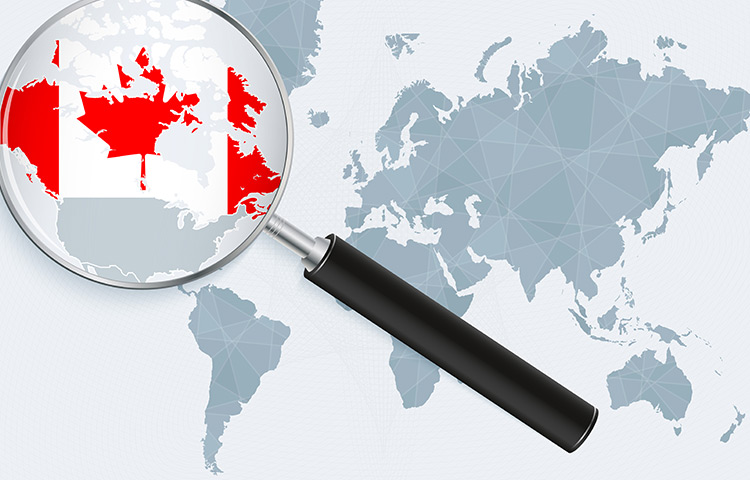Students interested in chemistry who enjoy taking up complex challenges and devising creative solutions should consider pursuing chemical engineering in Canada. With technological advancements taking place every day and the rise in sustainability efforts, the demand for chemical engineers is increasing in the country, offering students numerous job opportunities after chemical engineering in Canada. Here’s all you need to know:
Key highlights:
- Benefits of Studying in Canada
- Chemical Engineering: A Course Overview
- Top Chemical Engineering Universities in Canada
- Eligibility Criteria for International Students to Study Chemical Engineering in Canada
Benefits of Studying in Canada
- Top-Ranked Universities: You will find some of the best chemical engineering universities in Canada. These universities and research institutions are world-renowned and offer globally recognised degrees.
- Excellent Education System: The country’s education system offers comprehensive academic programmes that focus on theoretical learning, practical experience, hands-on learning, and research opportunities for students.
- Diverse and Welcoming Environment: Canada is home to individuals from diverse walks of life, which ensures that international students studying chemical engineering in Canada get exposure to a culturally rich and welcoming environment.
- Work Opportunities in Canada: International students can work part-time for up to 24 hours per week during their studies and full-time during school breaks. Students can also apply for a post-graduation work permit (PGWP) in Canada, which allows them to work in the country after completing their graduation from a Designated Learning Institution (DLI) in a PGWP-eligible course.
Chemical Engineering: A Course Overview
Chemical engineering is a branch of engineering that utilises the principles of mathematics, physics, chemistry, biology, and other natural sciences to bring about molecular-level transformations through chemical processes. Chemical engineers are at the forefront of advancements, driving innovative developments in energy, biomedicine, sustainability, microelectronics, biotechnology, consumer products, manufacturing, and advanced materials.
There are three major intakes for international students planning to study chemical engineering in Canada. The fall intake typically starts in September and ends in June-July. Those who miss these deadlines can apply during the winter intake, which typically begins in January and lasts till April or May. The summer or spring intake typically starts in April or May and ends somewhere in August but has limited numbers of universities and courses available. All chemical engineering universities in Canada may have different deadlines, so it is important that you check official university announcements for the same.

Also Read: Thinking of Studying in Canada? Career Opportunities for Students
Top Chemical Engineering Universities in Canada
Here are some of the best chemical engineering universities in Canada, based on the Quacquarelli Symonds (QS) World University Rankings and the Times Higher Education (THE) World University Rankings.
- QS Category: QS World University Rankings 2025: Chemical Engineering (Canada-Specific)
- THE Category: THE World University Rankings 2025: Chemical Engineering (Canada-Specific)
| Universities | QS World University Rankings 2025 | THE World University Rankings 2025 |
|---|---|---|
| University of Toronto | 1 | 1 |
| McGill University | 2 | 3 |
| University of British Columbia | 3 | 2 |
| University of Alberta | 4 | 5 |
| University of Waterloo | 5 | 7 |
| McMaster University | 6 | 4 |
| University of Calgary | 7 | 9 |
| Université de Montréal | 8 | 6 |
| Western University | 9 | 10 |
| Queen’s University at Kingston | 10 | 13 |
Eligibility Criteria for International Students to Study Chemical Engineering in Canada
Eligibility Criteria for International Students for Pursuing Bachelor of Engineering (Chemical) in Canada
- Secondary school programme or equivalent diploma.
- High school subjects must include Chemistry, Math, and English.
- English proficiency tests, like the Test of English as a Foreign Language (TOEFL), International English Language Testing System (IELTS), Pearson Test of English (PTE), etc.
- Statement of Purpose (SOP).
- Letters of Recommendation (LORs).
- Documents Required: Academic transcripts, proof of funds, valid passport, and study permit.
Eligibility Criteria for International Students for Pursuing Master’s Courses in Chemical Engineering in Canada
- Bachelor’s degree in a relevant field.
- English proficiency tests, like the TOEFL, IELTS, PTE, etc.
- Statement of Purpose (SOP).
- Letters of Recommendation (LORs).
- Documents Required: Academic transcripts, updated CV, proof of funds, valid passport, and study permit.
We at Avanse Financial Services can help fund your academic plans to pursue chemical engineering in Canada with education loans for students, tailored to meet your finance-related needs. The cost of studying in Canada, which depends on the university, course level, city, and cost of living, can be financed with our education loans.
Use our online tools, such as the Education Loan EMI Calculator, to calculate EMI for an education loan to make an informed financial decision. If you have any queries, please connect with us today.











